Related Research Articles

Margaret Grace Bondfield was a British Labour Party politician, trade unionist and women's rights activist. She became the first female cabinet minister, and the first woman to be a privy counsellor in the UK, when she was appointed Minister of Labour in the Labour government of 1929–31. She had earlier become the first woman to chair the General Council of the Trades Union Congress (TUC).

The Women's Social and Political Union (WSPU) was a women-only political movement and leading militant organisation campaigning for women's suffrage in the United Kingdom founded in 1903. Known from 1906 as the suffragettes, its membership and policies were tightly controlled by Emmeline Pankhurst and her daughters Christabel and Sylvia. Sylvia was eventually expelled.

Edith Mary Oldham Ellis was an English writer and women's rights activist. She was married to the early sexologist Havelock Ellis.
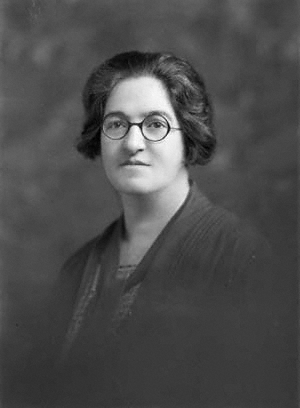
Marion Phillips was an Australian-born British Labour Party politician who served as a Member of Parliament (MP) from 1929 to 1931.

Notting Hill and Ealing High School is a private day school for girls aged 4 – 18 in Ealing, London. Founded in 1873, it is one of the 26 schools that make up the Girls' Day School Trust. It has a Junior Department of 310 girls and a Senior Department of 600 girls. The current Headmaster is Mr Matthew Shoults. Ms Bevan is Head of the Junior School.
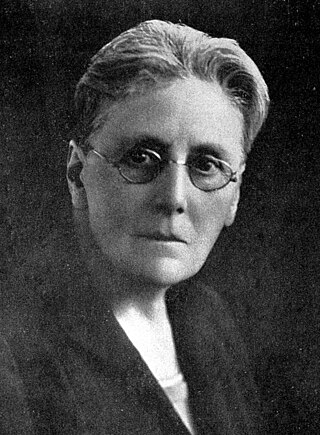
Ethel Bentham, was a progressive medical doctor, a politician and a suffragist in the United Kingdom. She was born in London, educated at Alexandra School and College in Dublin, the London School of Medicine for Women and the Rotunda Hospital.
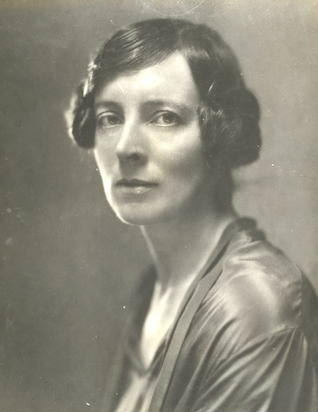
Mary Agnes Hamilton CBE was a writer, journalist, broadcaster, civil servant, and the Labour Member of Parliament for Blackburn from 1929 to 1931. She headed the American Division of the Ministry of Information and then of the Foreign Office from no later than 1946 until 1952, and worked for the Information Research Department.

Mary Reid Anderson was a Scottish suffragist and was a leading trades unionist. She was the general secretary of the Women's Trade Union League and was involved in the formation of the National Federation of Women Workers and National Anti-Sweating League.
James Smith Middleton was a journalist and political organiser best known for serving as the General Secretary of the Labour Party.
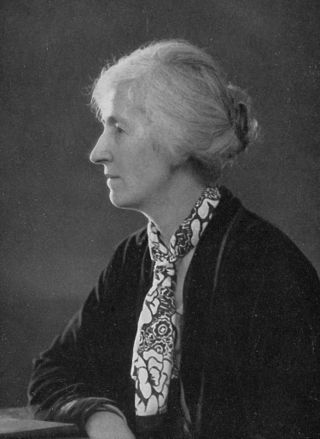
Ada Salter was an English social reformer, environmentalist, pacifist and Quaker, President of the Women's Labour League and President of the National Gardens Guild. She was one of the first women councillors in London, the first woman mayor in London and the first Labour woman mayor in the British Isles.
Mary Middleton was a Scottish political activist.
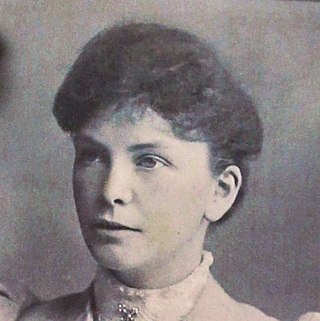
Enid Stacy was an English socialist activist. Stacy was born on 10 June 1868 in Westbury, Gloucestershire, the eldest of the Irish painter Henry Stacy and his wife Rose Deeley's four children. The family moved to Bristol in 1881. She was raised in a Christian socialist household; her brother helped found the Bristol and Clifton Christian Socialist Society and her father later became involved with the Bristol Socialist Society. She studied at the University of Bristol, where she won the Whitworth Scholarship, and she then became a tutor at the Redland High School for Girls. There, she met Katharine St John Conway, with whom she shared an interest in John Ruskin and Anglo-Catholicism.
This is an overview of Women's Suffrage activism and local politics as experienced in Leigh, Lancashire between 1900 and 1914.
Mary Amelia Macpherson was a British socialist activist.
Clara Selina Hendin was a British socialist activist.
Maud M. A. Ward was a British socialist activist.

The Central Committee on Women's Employment, later known as the Central Committee on Women’s Training and Employment, was an organisation set up in the United Kingdom during the First World War to provide employment for women, especially those who had become unemployed due to the War. In 1920, it became a standing committee in the House of Commons.
The Women's Home Internationals were an amateur team golf championship for women contested between the four Home Nations of England, Scotland, Wales and Ireland, where Ireland was represented by the whole island of Ireland on an All-Ireland basis. After the Ladies' Golf Union, the former governing body for women's golf in Great Britain and Ireland, merged into The R&A in 2016, The R&A took over organisation of the event. The match was played annually and the venue cycled between the four nations. In 2022 the match was replaced by a combined Women's and Men's Home Internationals.
The Women's International Council of Socialist and Labour Organizations was a body established within the Second International to enable special conferences of the socialist and labour movements to be held. It was founded at the First International Conference of Socialist Women in Stuttgart, 1907.
Harriette Mary Beanland was a British textile worker and suffragette who was secretary to the Women's Labour League branch in Nelson in Lancashire.
References
- ↑ "Women, the Vote and Labour 1906-1918". National Co-operative Archive. Archived from the original on 2 April 2015. Retrieved 23 August 2014.
- ↑ Collette, Christine (1989). For Labour and for Women: The Women's Labour League 1906–18. Manchester: Manchester University Press. p. 31. ISBN 0-7190-2591-5.
- 1 2 3 "Labour History Archive and Study Centre". Archives hub. Retrieved 7 September 2014.
- ↑ Williamson, Philip (2004). "Bondfield, Margaret Grace" . Oxford Dictionary of National Biography (online ed.). Oxford University Press. doi:10.1093/ref:odnb/31955 . Retrieved 21 August 2014.(Subscription or UK public library membership required.)
- ↑ June, Hannam (2004). "MacDonald, Margaret Ethel Gladstone" . Oxford Dictionary of National Biography (online ed.). Oxford University Press. doi:10.1093/ref:odnb/45462 . Retrieved 23 August 2014.(Subscription or UK public library membership required.)
- ↑ Collette, Christine (1989). For Labour and for Women: The Women's Labour League 1906–18. Manchester: Manchester University Press. pp. 132–34. ISBN 0-7190-2591-5.
- ↑ Collection Catalogues and Descriptions, Labour History Archive and Study Centre, archived from the original on 13 January 2015, retrieved 12 February 2015
- ↑ Christine Collette, For Labour and for Women: The Women's Labour League, 1906-1918, p.54
- ↑ appears in the 1911 census at 12 Station Road, Ashley Down, Bristol no occupation shown aged 34 living with her husband Walter Ayles.
- ↑ appears in the 1901 Census at 24 Victoria Avenue Stockon on Tees shown as a Socialist Health Lecturer aged 36 with her husband a trade union organiser